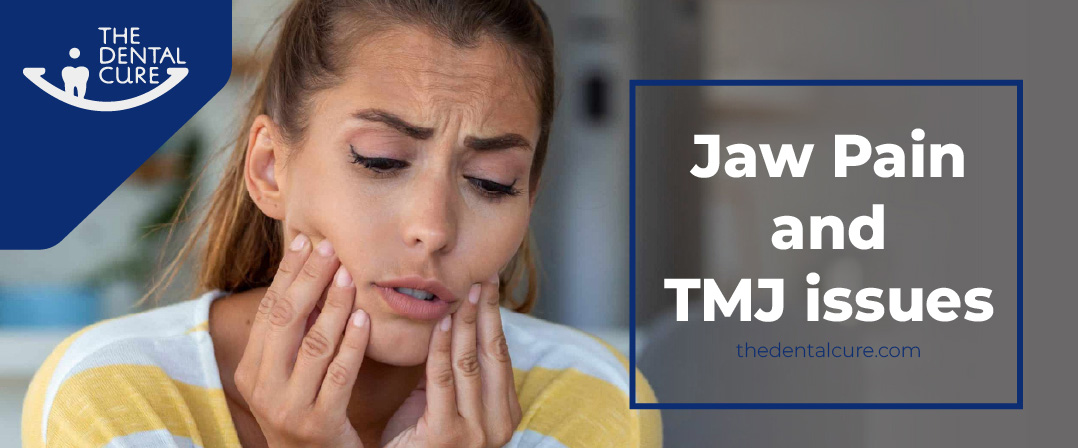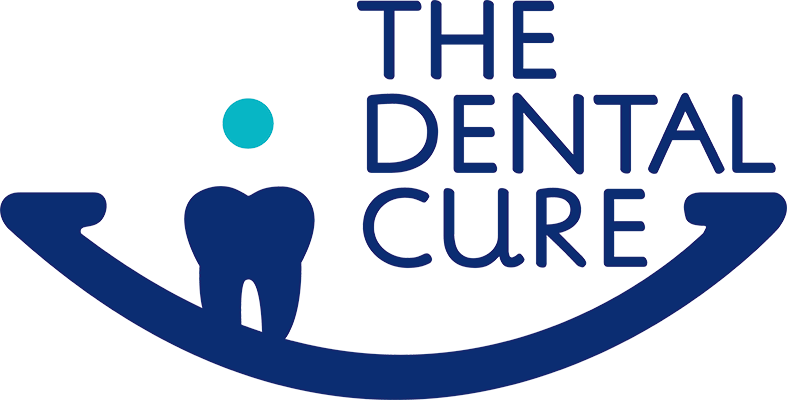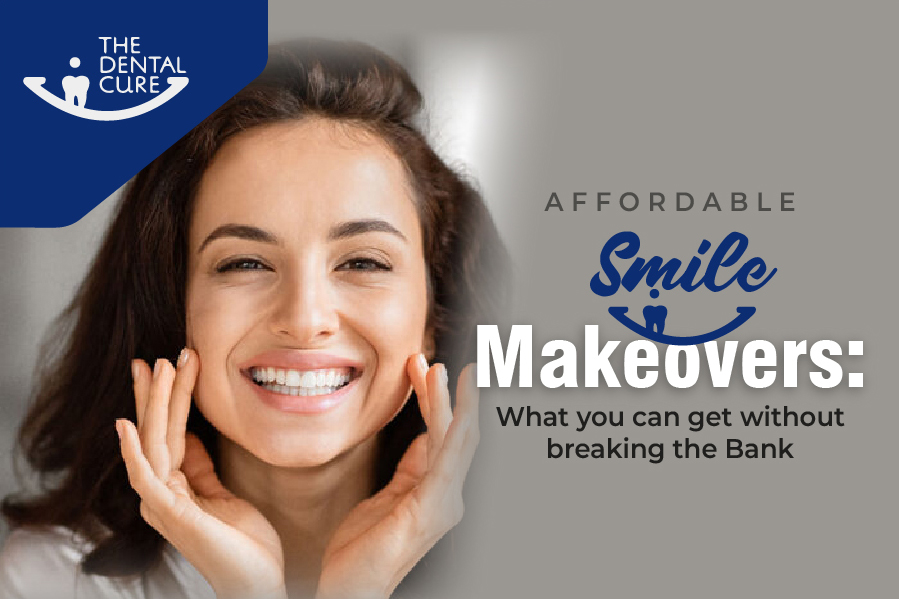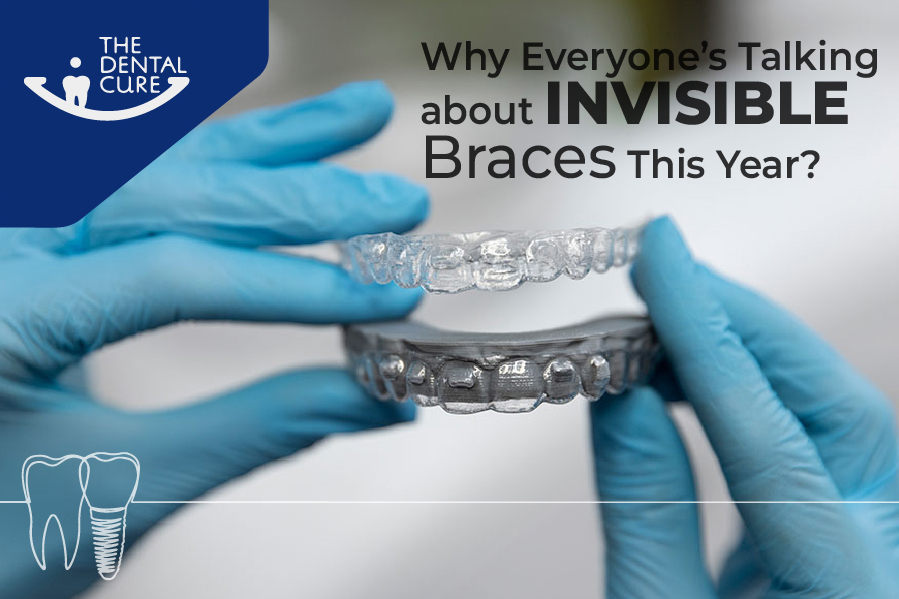
Jaw pain is a common yet often overlooked issue that affects many individuals, leading to discomfort, difficulty in opening the mouth, and sometimes even jaw lock. Chronic jaw pain can interfere with daily activities such as eating and speaking, making it essential to seek timely and effective treatment. At The Dental Cure, we provide comprehensive solutions for jaw pain, combining advanced diagnostic tools and modern treatment modalities to ensure both short-term relief and long-term correction.
Common Causes of Jaw Pain
Jaw pain can result from various conditions, including:
- Temporomandibular Joint Disorder (TMD/TMJ): Misalignment of the jaw joint causing pain and restricted movement.
- Bruxism (Teeth Grinding): Chronic teeth grinding, often unconscious, leading to muscle fatigue and inflammation.
- Jaw Lock: Sudden or gradual locking of the jaw, preventing smooth opening and closing.
- Arthritis or Inflammation: Inflammation in the temporomandibular joint due to arthritis or injury.
- Trauma or Injury: Accidental trauma to the jaw that affects the jaw’s alignment or function.
Advanced Diagnostic Tools at The Dental Cure
To ensure precise diagnosis and effective treatment, The Dental Cure uses state-of-the-art machines for jaw analysis, including:
- TENS Scan (Transcutaneous Electrical Nerve Stimulation): Relaxes jaw muscles and reduces muscle spasms to alleviate pain and tension.
- EMG (Electromyography): Evaluates muscle activity to detect abnormal patterns and identify jaw misalignment.
- Jaw Tracker: Monitors jaw movements and provides detailed insights into jaw position, helping in the formulation of accurate treatment plans.
Short-Term Treatment Solutions
For immediate pain relief, The Dental Cure offers a combination of short-term solutions to reduce inflammation and muscle tension. These include:
Botox Injections: Botox temporarily relaxes the overactive jaw muscles, reducing pain and improving jaw mobility.
Muscle Relaxants and Anti-inflammatory Medications: A combination of muscle relaxants and anti-inflammatory drugs helps relieve pain and swelling.
Trigger Point Injections: Directly administered to targeted muscle areas to alleviate pain and restore jaw function.
Long-Term Treatment Solutions
While short-term solutions offer relief, long-term correction ensures that the root cause of jaw pain is addressed. Our approach includes:
- Jaw Reprogramming and Corrective Treatment: Using advanced technologies to reposition the jaw in the correct bite alignment, restoring balance and eliminating chronic pain.
- Invisalign Treatment: After the jaw is reprogrammed into the correct position, Invisalign aligners are used to maintain and enhance the correct bite in centric relation.
- Custom Oral Appliances: Specially designed devices to support proper jaw alignment and prevent teeth grinding.
When to Consider Advanced Treatment Options
If jaw pain persists despite initial treatments, or if there are frequent episodes of jaw locking and restricted movement, advanced corrective solutions such as Invisalign, orthotic appliances, or long-term jaw alignment techniques may be recommended.
Why Choose The Dental Cure?
At The Dental Cure, we focus on a personalised, patient-centric approach that combines short-term pain relief with long-term corrective solutions. Our use of cutting-edge diagnostic technology and experienced guidance from Dr. Pooja Yadav ensures that each patient receives the most effective treatment plan tailored to their condition.
Conclusion
Jaw pain can significantly impact quality of life, but with the right combination of short-term and long-term solutions, it can be effectively managed and treated. By utilizing advanced diagnostic tools like TENS Scan, EMG, and Jaw Tracker, The Dental Cure offers innovative treatment plans to address the root cause of jaw pain and provide lasting relief. Whether you need immediate pain relief or long-term corrective solutions, trust Dr. Pooja Yadav and his expert team to restore your jaw health and functionality.
FAQs
1. What causes chronic jaw pain and discomfort?
Chronic jaw pain is often caused by temporomandibular joint disorder (TMD/TMJ), teeth grinding (bruxism), arthritis, jaw misalignment, or trauma. Identifying the root cause is essential for effective treatment.
2. How do I know if I have TMJ disorder (TMD)?
Common symptoms include jaw pain, difficulty in opening or closing the mouth, clicking or popping sounds, headaches, and jaw locking. If these symptoms persist, consult a specialist for an accurate diagnosis.
3. What is the role of TENS scan in jaw pain treatment?
A TENS Scan (Transcutaneous Electrical Nerve Stimulation) relaxes the jaw muscles, reduces muscle spasms, and relieves pain by sending mild electrical impulses to the affected area.
4. How does EMG help in diagnosing jaw issues?
EMG (Electromyography) monitors jaw muscle activity and identifies abnormal patterns. It helps in determining the severity of muscle tension and guides in creating a customized treatment plan.
5. What is a Jaw Tracker, and how does it work?
A Jaw Tracker monitors jaw movements, tracks deviations, and helps assess jaw alignment. It provides real-time data that assists in diagnosing jaw dysfunction and planning corrective treatments.
6. Can Botox be used to treat jaw pain?
Yes, Botox injections temporarily relax overactive jaw muscles, reduce pain, and improve jaw mobility. It is an effective short-term solution for managing chronic jaw pain and TMD symptoms.
7. What are the long-term solutions for chronic jaw pain?
Long-term solutions include jaw reprogramming, corrective bite alignment, and Invisalign treatment to maintain the corrected position. These treatments address the root cause of jaw pain and prevent future discomfort.
8. When is Invisalign recommended for jaw alignment?
Invisalign is recommended after the jaw is reprogrammed to the correct position. It helps maintain proper bite alignment and ensures that the corrected position is preserved over time.
9. How do seasonal changes and stress affect jaw pain?
Cold weather, increased stress, and teeth grinding can worsen jaw pain by causing muscle tension and inflammation. Relaxation techniques and customized oral appliances can help mitigate these effects.
10. What are the risks of ignoring persistent jaw pain?
Ignoring chronic jaw pain can lead to worsening of TMD, jaw lock, difficulty in chewing, increased headaches, and even long-term joint damage. Early intervention helps prevent further complications.







